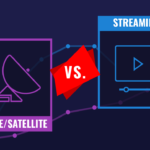The Income Tax Act, of 1961, has certain sections which deal with tax concessions and benefits allotted to differently-abled individuals. Section 80DD and Section 80U prescribe various instruments, expenditures, and investments that can help a differently-abled individual or their guardian/s receive tax benefits. One can get an estimate of the extent of these benefits with the help of an income tax calculator.
Budget 2022, declared by the Finance Minister of India, Nirmala Sitharaman, has introduced new amendments that further benefit the differently-abled community and their caretakers. Let us look at this in detail.
Tax concessions allowed under Section 80DD
This section primarily aims to encourage parents and guardians of differently-abled individuals to expend on financial instruments, medical treatment, and other forms of rehabilitation that can help them live an easier life, whether in the presence of the caretakers or in their absence. The term ‘guardian’ can mean the spouse, child, parent, or sibling.
Under this Section, if a guardian of a differently-abled dependent person bought an insurance policy or a similar scheme for their care and was paying premiums for the same, then that premium amount can be claimed for tax deductions. This clause can be utilized by guardians as long as certain conditions are met.
If the tax liability of the taxpayer is over Rs 10,000, then they can opt to pay advance tax during the financial year itself. Tax deductions work a bit differently when it comes to advance tax payment, so proceed accordingly.
Conditions on the deductions
The maximum deduction allowed depends on the type and severity of the disability. If the dependent individual is suffering from severe disabilities of over 80 percent, then the maximum deduction one can claim is Rs 1.25 lakhs. If the severity of the disabilities is under 40 percent, then the maximum deduction one can claim is Rs 75,000. Furthermore, the diagnosis and severity of the disability should be certified by a government hospital.
Earlier, the tax benefit was provided only if the differently-abled dependent individual received income from the policies/schemes after the death of their guardian.
Easing of restrictions
With Budget 2022, the tax benefits will be applicable even during the parent or the guardian’s lifetime, as long as they are over 60 years old. So, the amount earnt or received will no longer be considered as the policyholder’s income and be taxable for the year in which the proceeds are received. When filing returns though, do remember to choose the right ITR form. There are over seven types of ITR forms available; opting for the wrong one may lead to a repetition of the process.
Tax concessions under Section 80U
While a parent or a guardian can benefit from Section 80DD, Section 80U is aimed at helping the differently-abled directly. If differently-abled individual pays for their medical treatment during a financial year, they can claim a deduction of up to Rs 1.25 lakhs. This deduction, too, is based on the severity of the disability of the claimant. If the disability is over 40 percent, the maximum deduction they can claim is Rs 75,000. The higher limit of Rs 1.25 lakhs is applicable for those with over 80 per cent disability. An income tax calculator can help one understand the amount of tax they are saving with these deductions.
Important things to remember about tax concessions for the differently-abled
- Deductions under Section 80DD are eligible only if the differently-abled individual is completely or mainly dependent on the guardian taxpayer. If the individual in question functions independently, then the tax benefits may not be applicable.
- If a differently-abled individual is claiming for tax benefits under Section 80U separately, then their parent or guardian is not permitted to claim for Section 80DD tax benefits.
- These deductions and exemptions would not be applicable for those individuals who have opted for the new tax regime. In the new tax regime, the government has lowered the taxes but also scrapped all deductions and exemptions. You, as a taxpayer, can choose between the old and the new tax regime.
Differently-abled individuals or their guardians with high tax liabilities can also opt to pay advance tax. It can greatly reduce the financial burden that a lump-sum tax payment often brings.








